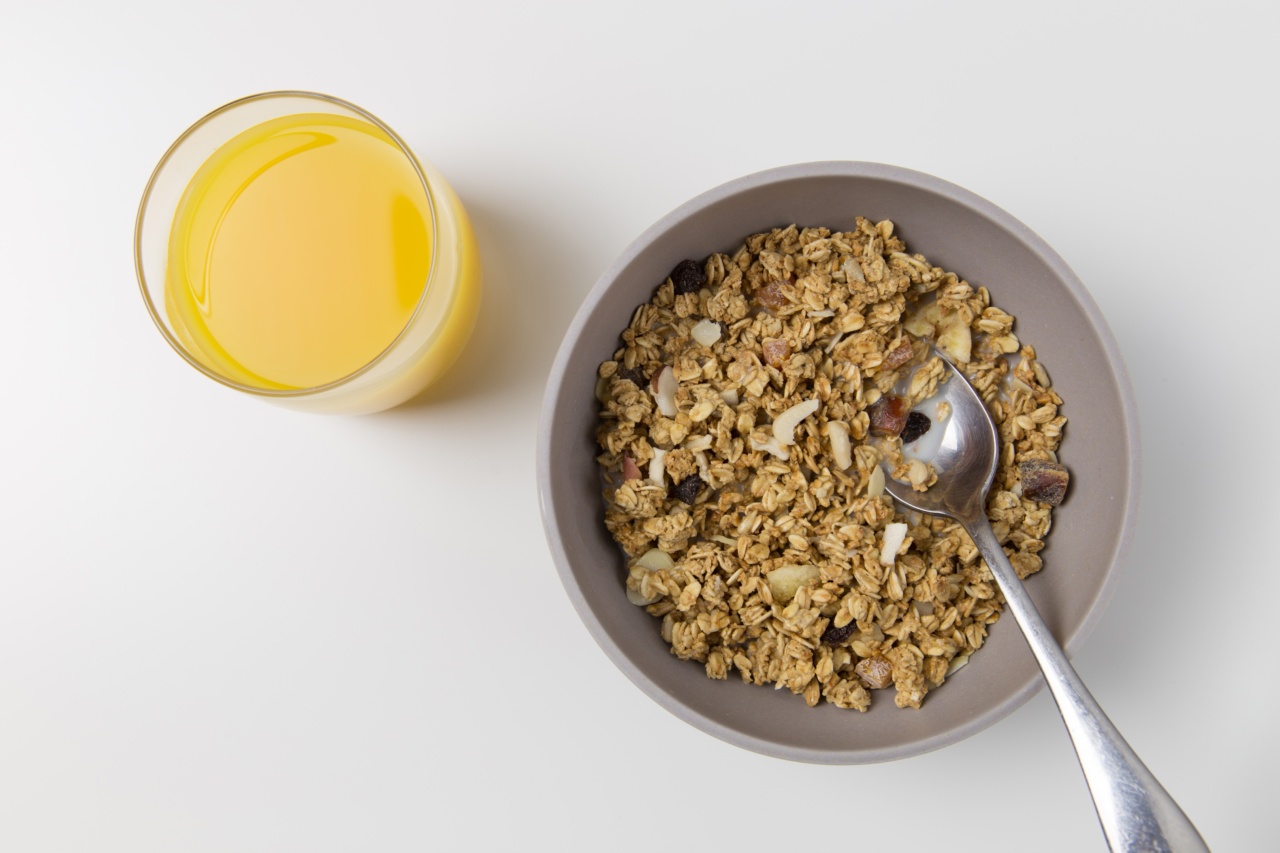When it comes to maintaining a healthy diet, fiber is an essential nutrient that often gets overlooked. Not only does it keep your digestive system running smoothly, but it also offers a range of other health benefits.
Most people don’t consume enough fiber in their daily diet, which can lead to constipation, weight gain, and other digestive issues. If you’re looking to transform your diet and improve your overall well-being, incorporating fiber-packed foods is a smart choice.
In this article, we’ll explore ten fiber-rich foods that can make a significant difference in your diet and overall health.
1. Chia Seeds
Chia seeds are tiny black seeds that are packed with fiber. They are also high in healthy omega-3 fatty acids, antioxidants, and various essential nutrients.
Adding just a tablespoon of chia seeds to your diet can provide you with a significant amount of fiber, helping to regulate bowel movements and promote a healthy digestive system. These versatile seeds can be added to smoothies, yogurt, oatmeal, or used as an egg substitute in baking recipes.
2. Broccoli
Broccoli is a cruciferous vegetable that is not only rich in fiber but also loaded with vitamins, minerals, and antioxidants. It is an excellent source of soluble and insoluble fiber, which aids in digestion and helps prevent constipation.
Broccoli can be steamed, roasted, stir-fried, or added to soups and salads. Including this nutritious vegetable in your diet can enhance your overall fiber intake and contribute to better gut health.
3. Lentils
Lentils are legumes that are a fantastic source of both fiber and plant-based protein. They are not only rich in soluble and insoluble fiber but also contain important minerals like iron and folate.
Lentils are incredibly versatile and can be easily added to soups, stews, salads, or even be cooked as a main dish. Incorporating lentils into your diet can help improve digestion, promote heart health, and enhance weight management.
4. Avocado
Avocado is a highly nutritious fruit that is rich in both fiber and healthy monounsaturated fats. It is an excellent source of soluble fiber, which can help maintain healthy cholesterol levels and provide a feeling of fullness.
With its creamy texture and mild flavor, avocado can be added to salads, sandwiches, smoothies, or enjoyed as a spread on toast. Including avocados in your daily diet can contribute to improved digestion and better satiety.
5. Whole Grains
Whole grains include foods like quinoa, brown rice, oats, and whole wheat products. These grains are a great source of insoluble and soluble fiber, as well as vitamins, minerals, and antioxidants.
Adding whole grains to your diet can improve digestion, regulate blood sugar levels, and reduce the risk of chronic diseases like cardiovascular issues and type 2 diabetes. Replace refined grains with whole grains to boost your fiber intake and make your meals more nutritious.
6. Berries
Berries like raspberries, blackberries, and strawberries are not only delicious but also packed with fiber and antioxidants.
They are low in calories and incredibly high in fiber, making them an ideal choice for a fiber-rich snack or addition to your breakfast. Berries can be enjoyed fresh, added to yogurt, smoothies, or even be used as toppings for pancakes or oatmeal. Including berries in your diet can improve digestion, promote satiety, and enhance overall health.
7. Beans
Beans, such as black beans, kidney beans, and chickpeas, are excellent sources of fiber, plant-based protein, and essential minerals.
They are packed with both soluble and insoluble fiber, which helps regulate bowel movements, promote heart health, and support weight management. Beans can be incorporated into a variety of dishes, including soups, stews, salads, and even used to create veggie burgers. Adding beans to your diet can significantly increase your fiber intake and provide you with numerous health benefits.
8. Artichokes
Artichokes are one of the most fiber-rich vegetables available. They are low in fat and calories, making them an excellent addition to any healthy diet.
With their distinct flavor and texture, artichokes can be steamed, grilled, or added to a variety of dishes, including salads, pasta, or risotto. Including artichokes in your diet can support digestive health, aid in weight management, and contribute to better overall well-being.
9. Nuts and Seeds
Nuts and seeds, such as almonds, flaxseeds, and sunflower seeds, are not only delicious but also excellent sources of fiber, healthy fats, and essential nutrients.
They are particularly high in soluble fiber, which can promote healthy cholesterol levels and gut health. Nuts and seeds can be consumed as a snack, added to salads, yogurt, or used as toppings for various dishes.
Including a variety of nuts and seeds in your diet can help you meet your daily fiber needs while enjoying a crunchy and satisfying addition to your meals.
10. Sweet Potatoes
Sweet potatoes are a nutritious and fiber-packed root vegetable that offers a range of health benefits. They are high in soluble and insoluble fiber, as well as essential vitamins and minerals.
Sweet potatoes can be baked, roasted, mashed, or even turned into fries. Adding sweet potatoes to your diet can improve digestion, enhance satiety, and contribute to better blood sugar control.



























